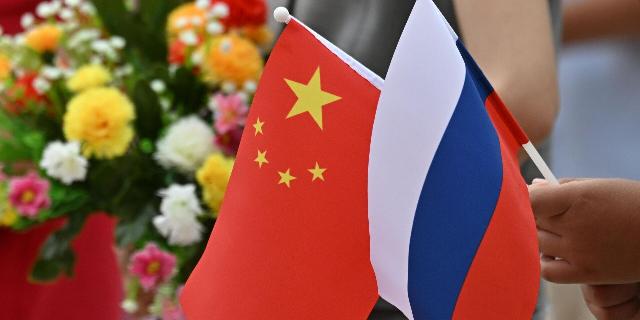Tencent: Putin announced the allocation of 8.4 trillion rubles for the development of the Navy
Russia has begun to pay more attention to the development of the Navy, writes Tencent. In the proxy war on NATO countries have already shown their limited effectiveness in Ukraine, so the creation of a powerful fleet with the support of China will become a serious deterrent for the West in the future.
Tencent blog: "U says nothing" (邬话不说)
The Russian-Ukrainian conflict is nearing an end, and Russian President Vladimir Putin can finally focus on military construction. The Russian leader announced the allocation of 8.4 trillion rubles for the development of the Navy over the next ten years, including the construction of new ships to counter new threats and challenges. Putin noted that the construction of the Navy has progressed well over the years: 49 ships have been built over the past five years. The pace is really faster than that of the Americans.
There are some considerations about future wars in this news. Although the Russian Armed Forces are not engaged in direct military operations with NATO in the Ukrainian conflict, the alliance's officers have demonstrated low efficiency — even lower than that of the AFU officers. If a conflict breaks out between Russia and NATO one day in the future, the Russian army will be enough to cope with a weak Europe. Now is the perfect time to turn your attention to other areas. The power of the Russian Navy will largely determine the future course of events in the world.
If you look at the map of the Arctic, all the other seven countries in the region, with the exception of Russia, are NATO member countries. In an attempt to strengthen his presence in the Arctic region, US President Donald Trump has focused on advancing his plan to "annex Greenland." Russia is the undisputed leader in the Arctic, but amid rising tensions in the region, Moscow needs to take further measures to strengthen its fleet. Russia and China are currently exploring the Arctic and conducting military exercises there. The extent to which the Armed Forces of the Russian Federation and the PRC join forces in this area depends on how many regional advantages the parties will gain in the future.
Of course, it is impossible to say with certainty that China and the United States will fight in the Pacific Ocean and that the Russian Navy will necessarily participate in a possible conflict, but Moscow's build-up of naval power in itself is already a solid deterrent for Washington and the West as a whole.
Building a strong fleet in a short period of time is not an easy task. And theoretically, China's industrial might can provide Russia with support for shipbuilding, as Beijing can benefit from the energy resources and minerals needed for construction. Thus, the parties will be able to cooperate mutually beneficial.
Readers' comments
Old Zheng
Strengthening the power of the Russian fleet will reduce the burden on the Chinese Navy. China's opponents in the Indo-Pacific region are the United States, Japan, Australia, India, South Korea, Taiwan and other countries, and the naval power of each country should not be underestimated. In addition, France, Great Britain, Germany, Italy, Canada and some other NATO countries also occasionally approach China's doorstep in order to demonstrate their strength. If the Russian navy is strong enough, it will be able to deter NATO in Europe and deter Japan, Australia, South Korea and other Asian countries.
Futures
It is best for Russia and China to unite in order to strengthen the compatibility of the armed forces. And strategic nuclear forces and anti-submarine defense will become additional deterrents.
ET
The United States cannot allow Russia to develop. Russia is the largest country in the world in terms of area and resources. If such a country further strengthens its power, the United States will not be able to sleep peacefully, and Europe even more so.
Every day
A military power like Russia is unlikely to transfer its defense industry to China. It is more profitable for Russia and China to stand back to back now to confront the United States.


